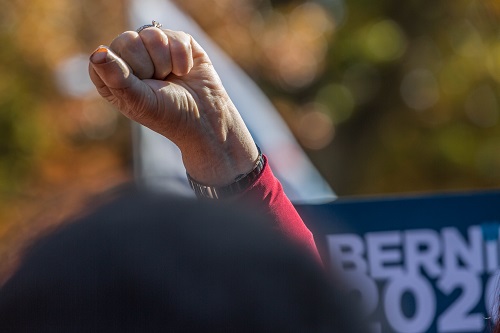
Socialism claims that its collectivist economic plans “put people first.” But even the philosophy behind socialism dehumanizes everyone involved – according to one of the foremost socialist leaders.
Marxism is rooted in the concept of dialectical materialism, the pseudo-scientific assertion that the endless churning of class conflict between the rich (bourgeoisie) and the poor (proletariat) eventually produces a worker’s paradise.
But to see “poverty as a force in a historic [dialectic], is not only the dehumanization of the poor, it is the dehumanization of him who thinks it. The reaction to this poverty should be partly one of calculation, of how can it be eradicated, but it must also be of the Beatitudes, of hunger and thirst for Justice, of love and grief for what goes on before our eyes.”
The man who wrote those words was Michael Harrington, future democratic socialist leader and activist whose book The Other America is credited with launching Lyndon Johnson’s war on poverty.
Alas, Harrington wasn’t advocating giving up statism, but his words provide common ground that both sides can take as a starting point.
We can agree that the human person must be the heart and center of everything we do. Harrington wrote that socialist theory objectifies the poor as little more than the vanguard of a new revolutionary order. And it objectifies those who insist on seeing their fellow human beings in this way and, thus, cut themselves off from humanity.
At the time he wrote these words in 1952, Harrington was a daily communicant associated with Dorothy Day’s Catholic Worker movement. Even then, his love proved more theoretical and idealistic than concrete. According to his biographer, Maurice Isserman, Harrington’s favorite position at the shelter was night watchman, which let him avoid contact with the poor and focus on writing. Within a few years, he would be a committed socialist and atheist.
We would add that socialism’s real-world results are no better than its theory. In addition to seeing the poor as a means rather than an end, the resultant welfare state cannot tailor its aid to fit individual circumstances. The term “faceless bureaucracy” is a cliché for a reason. Impersonal rules and regulations mete out uniform results to everyone, regardless of personal circumstances, motivations, or even whether they will help or hurt the recipient.
Christianity best fulfills the goal of giving the poor a face. Jesus’ disciples saw the poor as the image-bearers of God, imprinted with infinite and ineradicable human dignity. Furthermore, without loving and serving them – and all other people – in His name, a Christian cannot fulfill his commission as a believer. Without loving his brother, whom he has seen, a Christian cannot long remain in communion with God.
“Hell is not other people,” Metropolitan Kallistos Ware wrote in The Orthodox Church, contradicting Sartre’s well-known phrase. “Hell is myself, cut off from others in self-centeredness.”
We also share Harrington’s belief in prudent action to end poverty. If Harrington’s modern-day disciples, like Alexandria Ocasio-Cortez, wish to engage in the “calculation of how [poverty] can be eradicated,” they might begin by seeing how it has been extirpated – by the hundreds of millions in China alone. Since a group of rural farmers signed a compact by candlelight to allow private ownership in 1978, abandoning rigid socialism “has lifted more than 800 million people out of poverty,” according to the World Bank. The most doctrinaire Marxist nations are also those most plagued by want, famine, and malnutrition.
In the prosperous West, socialism is experiencing a resurgence. We can grant many young socialists have the purest motives and best of intentions. But we must also observe where the road they pave leads.
And as Harrington points out, the destination is the same for society and the theorists themselves. In that sense at least, socialism produces genuine equality.
(Photo credit: Lorie Shaull. CC BY-SA 2.0.)

